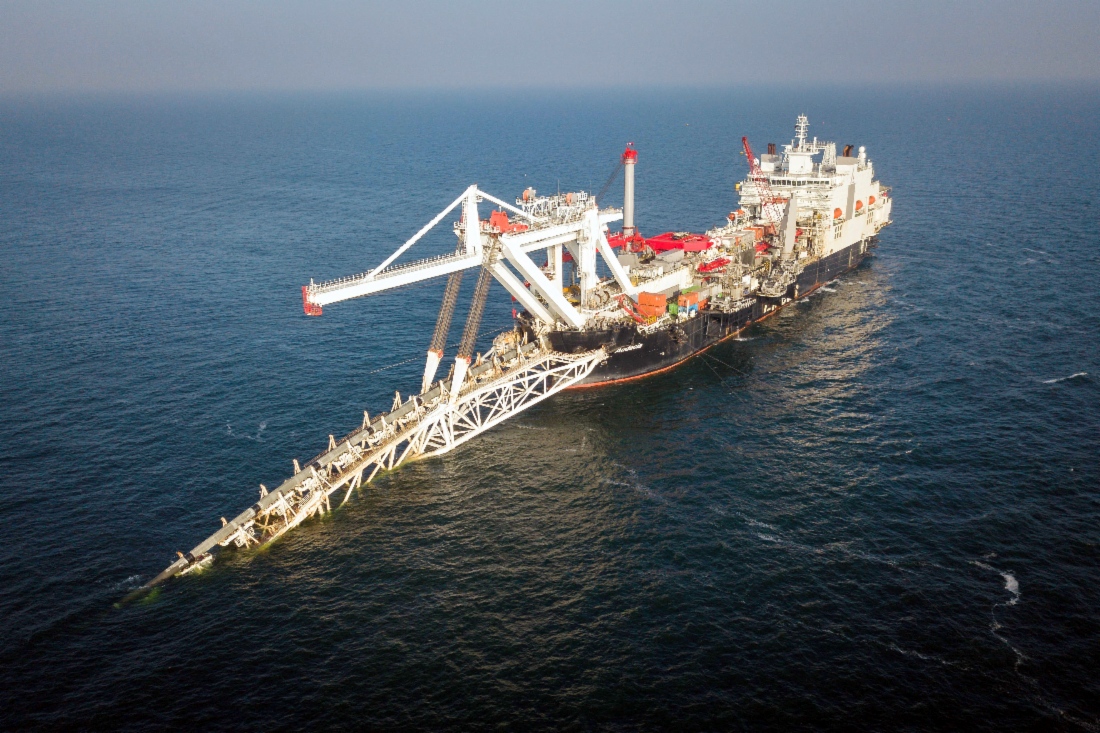Nord Stream 2 Pipeline Challenges EU in Court Over New Ruling
MOSCOW (Reuters) - The Russian-led Nord Stream 2 gas pipeline project is taking the European Union to court to challenge new rules it says endanger its business model, opening a new front in a fight that has divided EU nations.
The project said on Friday that it had asked the Court of Justice of the European Union to annul an EU gas directive amendment enforcing measures including a requirement for pipelines not be owned directly by gas suppliers and for at least 10 percent of capacity be made available to third parties.
The pipeline will be both owned and operated by Russian gas export monopoly Gazprom, though 50% of the funding is provided by Germany's Uniper and BASF's Wintershall unit, as well as Anglo-Dutch oil major Shell, Austria's OMV and France's Engie.
EU nations passed the rules this year over shared concerns that the pipeline would deprive Ukraine of gas transit fees that are a lifeline for its economy by doubling the amount of gas that could be pumped under the Baltic Sea.
Such worries, along with concerns over the EU's growing dependence on Russia for energy supplies, have also driven fierce U.S. lobbying against the project.
Eastern European, Nordic and Baltic Sea countries see the 1,225 km (760-mile) pipeline as increasing EU reliance on Moscow, while those in northern Europe, especially Germany, prioritize the economic benefits.
The new rules cast doubt over the operating structure of Nord Stream 2, which argues that it has been unfairly targeted by fast-tracked legislation to stall the project.
"The amendment was clearly designed and adopted for the purpose of disadvantaging and discouraging the Nord Stream 2 pipeline," it said in a statement, adding that the new rules breached "EU law principles of equal treatment and proportionality".
The European Commission has defended the new law saying it is in line with the bloc’s agreements abroad.
“The EU now has clear rules that apply to all pipelines used to import gas into the European market,” a Commission spokeswoman said. “The Commission considers that directive 2019/692 is fully compatible with the EU’s international obligations,” the spokeswoman said.
What could be a protracted legal battle adds to the uncertainty that Nord Stream 2 will be operational by the end of the year as planned.
The project is also still awaiting a permit from Denmark to complete construction.
Related News
Related News

- Keystone Oil Pipeline Resumes Operations After Temporary Shutdown
- Freeport LNG Plant Runs Near Zero Consumption for Fifth Day
- Biden Administration Buys Oil for Emergency Reserve Above Target Price
- Mexico Seizes Air Liquide's Hydrogen Plant at Pemex Refinery
- Enbridge to Invest $500 Million in Pipeline Assets, Including Expansion of 850-Mile Gray Oak Pipeline
- Evacuation Technologies to Reduce Methane Releases During Pigging
- Editor’s Notebook: Nord Stream’s $20 Billion Question
- Enbridge Receives Approval to Begin Service on Louisiana Venice Gas Pipeline Project
- Mexico Seizes Air Liquide's Hydrogen Plant at Pemex Refinery
- Russian LNG Unfazed By U.S. Sanctions





Comments